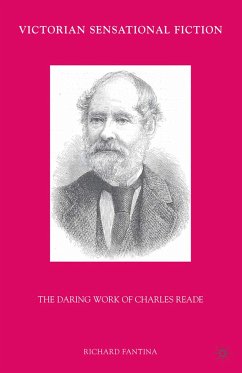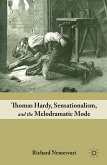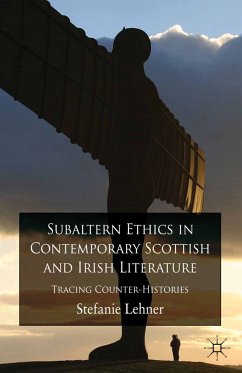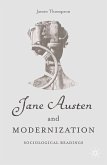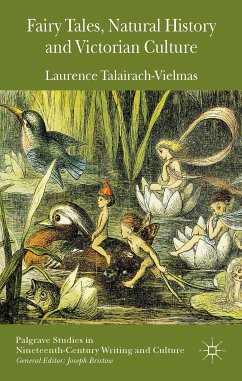This book recovers the fiction of Charles Reade, who was among the best-known authors of the sensation fiction of the 1860s, as a body of work that anticipates recent trends in literary and cultural theory.
Dieser Download kann aus rechtlichen Gründen nur mit Rechnungsadresse in A, B, BG, CY, CZ, D, DK, EW, E, FIN, F, GR, HR, H, IRL, I, LT, L, LR, M, NL, PL, P, R, S, SLO, SK ausgeliefert werden.
"Fantina s analysis of a controversial Victorian author is not only compelling but timely. Fantina s book illuminates the important contributions that Reade s oftenneglected works make to our understanding of Victorian social institutions (e.g. prisons and madhouses), gender ideology, and alternative sexualities - in essence, demonstrating how Reade s fiction was daring in its challenge of Victorian norms of sexuality, class, and gender. Moving nimbly among fictional analyses, critical theory, and historical information, Fantina illuminates how Reade s fiction anticipates and confirms the theoretical concerns of Foucault, whose sophisticated works Fantina reads as effectively as Reade s fiction." - Catherine J. Golden, Skidmore College and author of Posting It: The Victorian Revolution in Letter Writing
"Through close and historically contextualized analyses, Fantina shows that in many of his fictions Charles Reade responds to conditions and thinks through questions that have also concerned late twentieth and early twenty-first century theorists - he shows that Reade produces critiques of the prison and the asylum that foreshadow Michel Foucault s investigations of disciplinary institutions a hundred years later and that Reade s representation of masculine women finds a counterpart in the thought of Judith Halberstam today. High modernism diverged from the path that Reade followed, but Fantina brings much deserved and long-delayed attention to this socially committed novelist in his fascinating and illuminating study." - Frank Palmeri, Professor and Director of Graduate Studies, Department of English, University of Miami
"Through close and historically contextualized analyses, Fantina shows that in many of his fictions Charles Reade responds to conditions and thinks through questions that have also concerned late twentieth and early twenty-first century theorists - he shows that Reade produces critiques of the prison and the asylum that foreshadow Michel Foucault s investigations of disciplinary institutions a hundred years later and that Reade s representation of masculine women finds a counterpart in the thought of Judith Halberstam today. High modernism diverged from the path that Reade followed, but Fantina brings much deserved and long-delayed attention to this socially committed novelist in his fascinating and illuminating study." - Frank Palmeri, Professor and Director of Graduate Studies, Department of English, University of Miami

